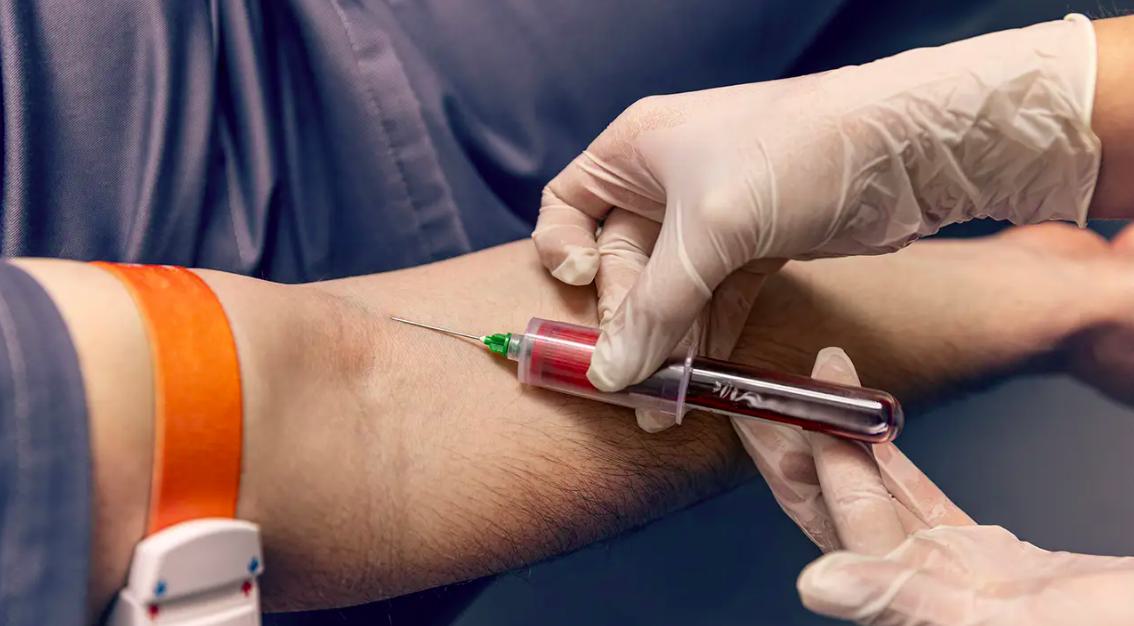Pancreatic cancer is one of the most challenging cancers to diagnose early because symptoms often appear only in advanced stages. Many patients are diagnosed late, when treatment options are limited and the disease is more difficult to manage. This has led researchers and healthcare providers to explore the role of blood tests as a tool for earlier detection and monitoring of pancreatic cancer.
A blood test for pancreatic cancer can help identify tumor markers, abnormal proteins, or genetic mutations associated with the disease. While no single test can confirm pancreatic cancer alone, combining blood tests with imaging and other diagnostic tools may improve early detection, guide treatment decisions, and monitor patient progress.
Definition and Overview
A blood test for pancreatic cancer refers to laboratory examinations that analyze a patient’s blood for biomarkers indicating cancer presence or progression. These tests are not stand-alone diagnostic tools but provide valuable information when used alongside imaging scans and biopsies. The most common biomarker evaluated in pancreatic cancer is CA 19-9, a carbohydrate antigen often elevated in patients with this disease.
Types
There are several types of blood tests used in pancreatic cancer care:
- CA 19-9 Test: Measures levels of carbohydrate antigen 19-9, the most widely used marker, though not always specific to pancreatic cancer.
- CEA (Carcinoembryonic Antigen) Test: Sometimes elevated in gastrointestinal cancers, including pancreatic cancer.
- Genetic Blood Tests: Analyze inherited mutations such as BRCA1, BRCA2, or PALB2 that increase pancreatic cancer risk.
- Liquid Biopsies: Emerging tests that detect circulating tumor DNA (ctDNA) or exosomes, offering potential for earlier and more accurate detection.
Causes and Risk Factors
Pancreatic cancer develops due to a combination of genetic, environmental, and lifestyle factors. Major risk factors include:
- Family history of pancreatic or related cancers
- Chronic pancreatitis
- Smoking and heavy alcohol use
- Obesity and poor diet
- Diabetes, particularly late-onset diabetes
- Exposure to certain chemicals or workplace toxins
Symptoms and Early Warning Signs
Recognizing the signs of pancreatic cancer early can be challenging, but some symptoms to watch for include:
- Persistent abdominal or back pain
- Unexplained weight loss
- Loss of appetite
- Yellowing of the skin and eyes (jaundice)
- Dark urine and pale stools
- Nausea, fatigue, and digestive issues
Diagnosis
Diagnosing pancreatic cancer usually requires a combination of approaches. A blood test for pancreatic cancer can suggest abnormal biomarker levels, but imaging techniques such as CT scans, MRI, or endoscopic ultrasound are essential for confirming the presence of a tumor. A biopsy remains the gold standard for diagnosis. Blood tests may also be used throughout the diagnostic process to track disease progression and treatment response.
Treatment Options
Treatment for pancreatic cancer depends on the stage and location of the tumor, as well as the patient’s overall health. Options include:
- Surgery: Such as the Whipple procedure for localized tumors.
- Chemotherapy: To shrink tumors or manage advanced disease.
- Radiation Therapy: Often used in combination with other treatments.
- Targeted Therapy and Immunotherapy: Newer options designed to attack cancer cells more precisely.
Blood tests play a vital role in monitoring how well these treatments are working.
Prevention and Lifestyle Recommendations
While pancreatic cancer cannot always be prevented, lifestyle changes may reduce risk:
- Quit smoking and avoid excessive alcohol consumption
- Maintain a healthy weight through diet and exercise
- Eat a balanced diet rich in fruits, vegetables, and whole grains
- Manage chronic conditions such as diabetes effectively
- Consider genetic counseling if you have a family history of pancreatic cancer
Prognosis and Survival Rates
The prognosis for pancreatic cancer depends heavily on the stage at diagnosis. Unfortunately, many patients are diagnosed at advanced stages, contributing to lower survival rates. The five-year survival rate remains low but continues to improve with advances in research and treatment. Blood tests for pancreatic cancer help doctors monitor treatment effectiveness and detect recurrences earlier, which can improve outcomes.
Latest Research and Innovations
Recent research focuses on improving the accuracy and reliability of blood tests for pancreatic cancer. Liquid biopsy technology and advanced genetic testing are showing promise in detecting cancer at earlier stages. Scientists are also exploring new biomarkers beyond CA 19-9, which could lead to more sensitive and specific tests. These innovations may revolutionize how pancreatic cancer is diagnosed and monitored in the near future.
Coping and Support for Patients
A pancreatic cancer diagnosis can be overwhelming, both emotionally and physically. Patients benefit from strong support systems that include healthcare providers, family, and support groups. Psychological counseling, nutritional guidance, and palliative care services can improve quality of life. Regular blood tests for pancreatic cancer can also provide reassurance by tracking disease status and treatment response.
Conclusion
A blood test for pancreatic cancer is an important tool in detecting, diagnosing, and managing this aggressive disease. While not definitive on its own, it provides critical information when combined with imaging and biopsy results. As research continues, advancements in blood-based testing may lead to earlier detection and improved outcomes for patients worldwide. Awareness, prevention, and support remain key in the fight against pancreatic cancer.
FAQ
Can a blood test detect pancreatic cancer early?
A blood test alone cannot definitively detect pancreatic cancer early, but it can reveal biomarkers that suggest further testing is needed.
What is the most common blood test for pancreatic cancer?
The CA 19-9 test is the most widely used, though it is not entirely specific to pancreatic cancer.
Are blood tests used to monitor treatment progress?
Yes, doctors often use blood tests to track tumor marker levels and evaluate how well treatment is working.
Can blood tests replace imaging or biopsy?
No, blood tests are complementary and must be used alongside imaging scans and biopsy for accurate diagnosis.
What new developments are happening in blood testing for pancreatic cancer?
Liquid biopsies and advanced genetic testing are promising innovations that may allow earlier detection and more personalized treatment approaches.

